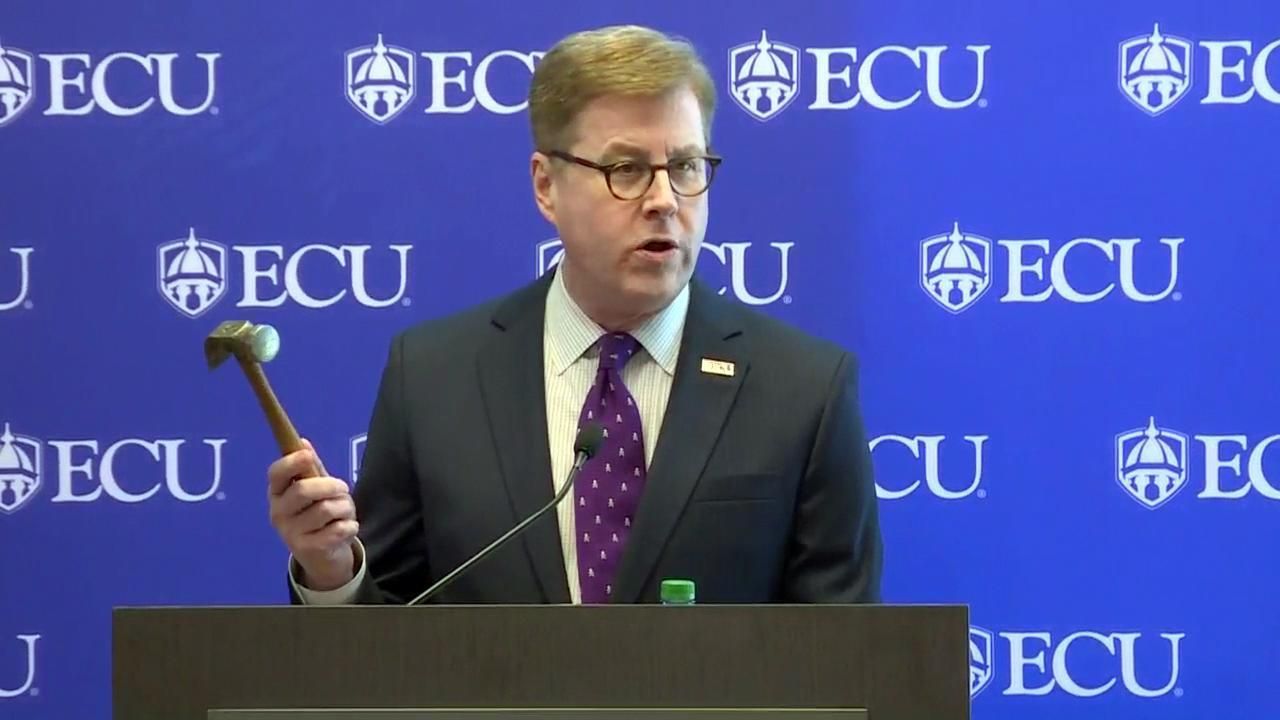Editorial: UNC Board -- Act like you run a $3.2 billion business, not a lemonade stand

CBC Editorial: Wednesday, March 20, 2019; Editorial #8403
The following is the opinion of Capitol Broadcasting Company
The first quarter of 2019 hasn’t closed and three of North Carolina’s top public higher education leaders are out of their jobs. The departures are no sign of their shortcomings. Rather it is glaring evidence of the dysfunction that grips the University of North Carolina Board of Governors.
The obsessive micromanagement of the campuses leaves the system leaderless. Individual institutions are in constant confusion. Unless this ends, the system is in jeopardy of being unable to attract the best administrators, brightest researchers and most inspiring teachers while serving our state’s aspiring young minds. It all diminishes UNC’s reputation.
To recap:
- UNC System President Margaret Spellings, who was President George W. Bush’s Education Secretary, left earlier this month.
- UNC-Chapel Hill Chancellor Carol Folt, who previously was President of Dartmouth University, was forced to relinquish her post on Jan. 31.
- Monday, East Carolina University Chancellor Cecil Staton, a conservative Republican state legislator from Georgia who’d been interim president of Valdosta State University, announced his resignation, labeling it a decision he “did not initiate.”
All of that comes on top of the disrespectful and abrupt ending of former UNC President Tom Ross’s service in 2016.
This latest episode left one current UNC board member clearly infuriated. Steven Long offered up a fiery condemnation of the action against Staton that laid bare the board’s failure to do its job. The action was an “irrational personal vendetta” of Board Chairman Harry Smith’s, Long said. It was in violation of the board’s policies. Smith, when asked about Long’s statement, said: "Everything in Steve's letter is actually incorrect" and that, "in the right time and place," it will be corrected.
Long is no so-called radical or liberal outlier. He is a Republican who was elected to the UNC Board – and re-elected – by Phil Berger’s state Senate. He led the controversial effort two years ago to ban the UNC Law School’s Center for Civil Rights from representing poor and minority clients in court.
While Long’s 1,000-word statement focuses on Staton, it could easily describe the board’s broader failings that prompted Spellings' departure and resulted in the unprofessional treatment of Folt.
These shortcomings haven’t come without warnings.
In August a diverse coalition of former UNC Board members warned that the “Board of Governors has become increasingly politicized, and some members are conflicted. Politics has no place in the selection of members, and any conflicts of interest must be avoided. Boards must have a high level of independence and professionalism to be effective.”
Earlier this month Mary Sue Coleman, president of the Association of American Universities, openly worried that the UNC Board was in crisis. “The pattern of disorderly transition generated by the UNC Board of Governors appears to be grounded in historical grievances. Focusing on such grievances impairs the balanced leadership expected from a university system that was once a superstar of American higher education.”
Board Chairman Smith has sought to challenge critics, saying the board’s worked effectively to shore up troubled Elizabeth City State University and make the NC Promise reduced tuition plan at selected campuses successful. The unfortunate reality is that these laudable efforts are isolated, not representative of the board’s overall performance.
In the 48 years since the UNC Board of Governors was created, the criteria and method of appointment has changed. The board is less diverse. Former UNC President Erskine Bowles and former Charlotte Mayor Richard Vinroot, in a recent commentary, called for “balance” on the board.
They rightly observed: “Leaders of the General Assembly who now wish to exercise absolute control over the appointment of the Board of Governors, or diminish the governor's role in naming trustees, risk damaging our great system's very foundation.”
There must be more diversity in both those who are named to the board and those who make the appointments.
It is time for appointment reforms that share that responsibility equally between the state House, Senate and the governor. The priority is maintaining and enhancing a world-class public higher education system, not fealty to partisan legislative leaders or specific political ideologies.
This is no lemonade stand. It is a $3.2 billion business. Stop the patronage and political games.











